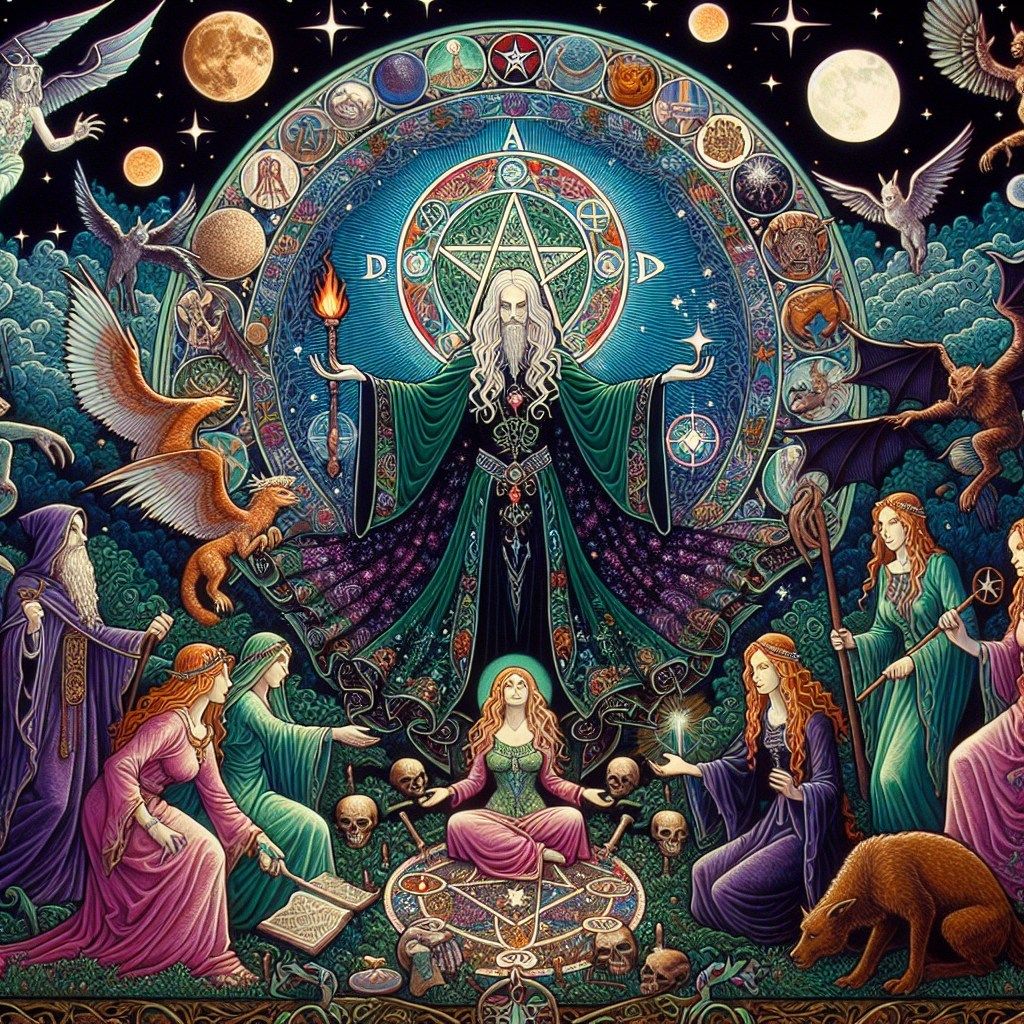Pagan Deities 101: Gods and Goddesses Across Cultures
The world of pagan deities is vast, sacred, and beautifully complex. From the forest gods of the Celts to the lunar goddesses of the Greeks, the stories of divine figures offer insight into ancient wisdom and modern spirituality. In this guide, we’ll journey through the powerful gods and goddesses from diverse cultures, exploring their meaning, symbolism, and relevance to today’s spiritual seekers.
For those walking a magical path—whether you’re a solitary witch, a practitioner of modern Paganism, or someone simply curious—understanding the deities of old is essential to honoring ancestral wisdom and building a deep, personal practice.
Why Pagan Deities Still Matter
Deities in pagan traditions are not distant figures. They are archetypes, guardians, and reflections of nature, the human experience, and cosmic forces. Whether called upon in rituals, meditations, or seasonal celebrations, these divine beings help shape the way practitioners understand themselves and the world.
They are sacred not just because they are old—but because they still resonate with energy, emotion, and power.
Gods and Goddesses in Different Traditions
Let’s look at a few well-known pantheons and their most revered deities:
Celtic Tradition
The Celts saw the divine in every aspect of nature. Their gods and goddesses often embody natural elements and seasonal cycles.
-
Brigid: Goddess of healing, poetry, and fire. She’s especially honored at Imbolc, a sacred festival of renewal and light.
-
The Dagda: A father god with a cauldron of plenty. He represents strength, protection, and knowledge.
These figures are often called upon during seasonal rituals and ancestral work, especially in nature-based practices.
Norse Mythology
The Norse gods and goddesses are fierce, wise, and deeply intertwined with fate.
-
Freyja: Goddess of love, war, and magic (seidhr). A favorite among witches, she teaches the power of emotional depth and independence.
-
Odin: God of knowledge, poetry, and death. He sacrificed his eye for wisdom, making him a powerful figure in divination and mystical study.
Many modern witches draw on Norse deities for strength and transformation, especially when working with runes or pathworking techniques.
Greek Pantheon
The Greek gods are known for their deeply human traits—love, jealousy, ambition, wisdom.
-
Hecate: Goddess of the crossroads, witchcraft, and the moon. She’s a patroness of witches and is often honored during the dark moon.
-
Apollo: God of prophecy, music, and the sun. He represents clarity, light, and the healing arts.
Worship of Greek deities is often incorporated into modern witchcraft practices, particularly in lunar magic and divinatory arts.
Egyptian Pantheon
Egyptian gods are rich with esoteric symbolism. They are deeply spiritual and rooted in the cycles of life and death.
-
Isis: A goddess of magic, rebirth, and motherhood. She is beloved for her fierce protection and nurturing energy.
-
Thoth: God of wisdom, writing, and the moon. Often called upon by mystics and scholars for insight and clarity.
Their worship lives on in many modern occult traditions and spiritual philosophies.
Honoring Deities in Your Practice
You don’t have to be a reconstructionist to work with pagan deities. Here are simple and meaningful ways to honor them:
-
Build an altar with offerings, symbols, or sacred objects.
-
Light a candle during the moon phases in their honor.
-
Read their myths and meditate on their messages.
-
Celebrate seasonal festivals where their presence is traditionally strong.
Working with a deity is not about blind worship—it’s a relationship. One built on respect, intention, and sacred curiosity.
Deities Are Not One-Size-Fits-All
It’s important to note: not every deity will call to every person. Some might feel a deep connection to the wild horned gods of the forest, while others find kinship with the lunar goddesses of the night sky. Let your intuition guide you. Let the signs reveal themselves through dreams, symbols, or synchronicities.
Our guide to Working With Moon Phases can help deepen your connection with lunar goddesses like Artemis or Selene.
Resources to Deepen Your Study
For further reading and exploration, here are some credible sources:
-
Theoi.com — for Greek mythology
-
CelticMythPodshow.com — for Celtic lore
-
Norse Mythology for Smart People — an excellent guide to the Norse gods
-
Sacred Texts — a treasure trove of global mythologies
Final Thoughts
Exploring pagan deities is not just about learning names and stories. It’s about discovering yourself in the mirror of myth. It’s about reconnecting with nature, mystery, and the divine spark that lives in all things.
So walk the sacred path. Let the gods and goddesses guide you. And remember—you are never alone on this journey between the moon and the woods.


